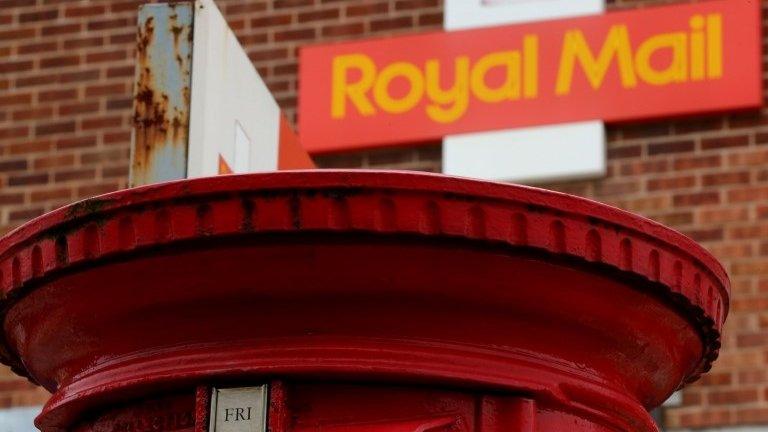Business Secretary Vince Cable defends Royal Mail sale
- Published
- comments
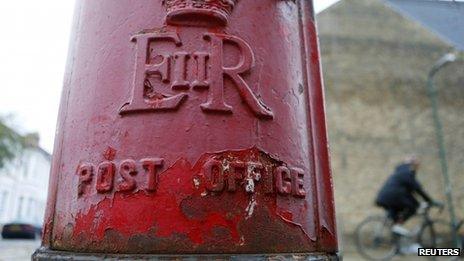
Royal Mail shares soared in value on their first day of trading
Business Secretary Vince Cable has defended the privatisation of Royal Mail, despite criticism from the spending watchdog.
Mr Cable said it had achieved its primary objective of selling the shares and reducing the risk to taxpayers.
It came after the National Audit Office, external said too much emphasis was put on rushing the sale, at the expense of value for money.
Shadow business secretary Chuka Umunna said it was "a first-class disaster".
But Mr Cable insisted the government had been "right to take a cautious approach".
Royal Mail shares are more than 70% higher than the 2013 sale price.
The Communication Workers Union called for Mr Cable to quit over the sale.
Billy Hayes, general secretary of the union, said it was a "botched, panic sale" and the business secretary "should consider his position".
Mr Cable refused to apologise, and said that the sale had raised £2bn for the taxpayer, with a further £1.5bn from the 30% stake in Royal Mail which it had retained.
Cancelled strike
Vince Cable on Royal Mail privatisation: "We did get value for money"
The privatisation of Royal Mail took place amid huge public interest and the shares rose by 38% from 330p to 455p on their first day of trading, meaning taxpayers had lost out on at least £750m in the sale.
The NAO report concluded that the Department for Business, Innovation and Skills was too cautious when setting the sale price.
"The department was very keen to achieve its objective of selling Royal Mail, and was successful in getting the company listed on the FTSE 100," said Amyas Morse, head of the NAO.
"Its approach, however, was marked by deep caution, the price of which was borne by the taxpayer."
A planned postal workers' strike, which was eventually cancelled after the privatisation, also affected the government's sale price.
Demand for Royal Mail shares was 24 times the maximum number available to investors, the NAO said, but the banks overseeing the sale advised there was not sufficient demand to justify a significantly higher figure.
George Godber, a fund manager at Miton Group, told Radio 4 that he was "astounded" by the low price.
"I thought it was significantly underpriced. In stock market terms, this was the London 2012 Olympic ticket moment, lots of people applied but very few got to go to the opening ceremony."
Managers from two of these advising banks - Goldman Sachs and UBS - said market uncertainty and the complexity of the deal led them to a conservative price when they were questioned by MPs in November last year.
They said there was a significant risk that raising the price past the £3.30 they had advised would diminish investor interest.
The NAO acknowledged the government had benefited from the increase in Royal Mail's share price via the 30% stake it still holds.
But it argues the benefits could have been even greater had the government kept a larger stake, while still fulfilling its policy objective of reducing public ownership to below 50%.
Overhaul
The spending watchdog also noted that a small number of shareholders, designated as "priority investors", had made significant profits from the increase in the sale price following the privatisation.
The government had allocated larger proportions of their shares orders to these 16 investors, in the belief that they would form part of a stable long-term and supportive shareholder base.
However, almost half of the shares allocated to them had been sold within a few weeks of the IPO.
Margaret Hodge, chair of the Public Accounts Committee (PAC), said the sharp rise in Royal Mail's share price since the sale showed "the department had no clue what it was doing."
Mr Umunna said Mr Cable could no longer dismiss the share price rise.
"He and David Cameron have serious questions to answer on the hundreds of millions of pounds they have lost British taxpayers and cannot duck responsibility for what has happened," he added.
- Published10 January 2014
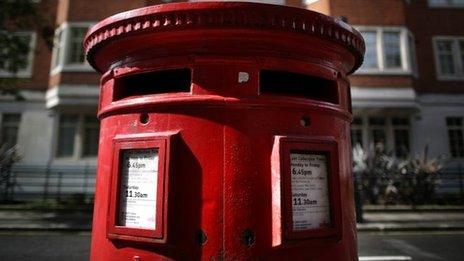
- Published10 January 2014
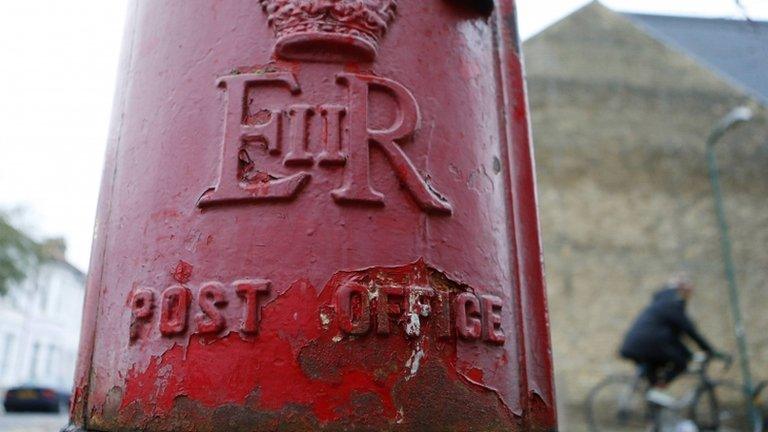
- Published11 October 2013
- Published11 December 2013

- Published22 October 2013
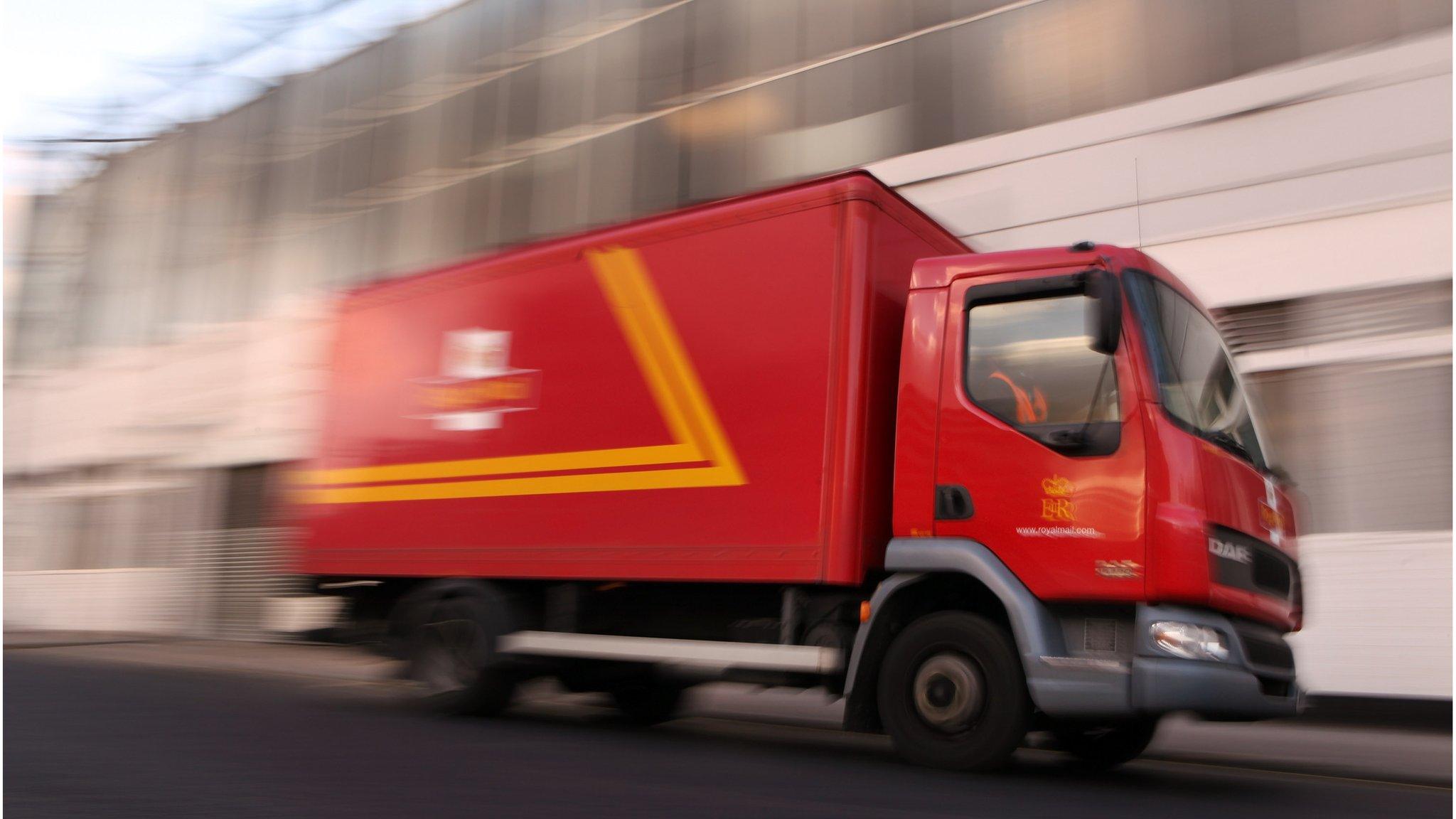
- Published19 October 2013
